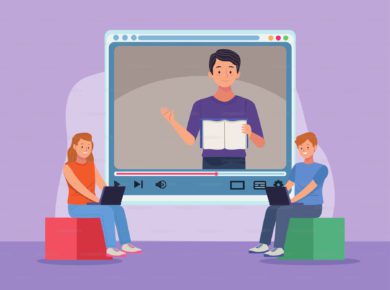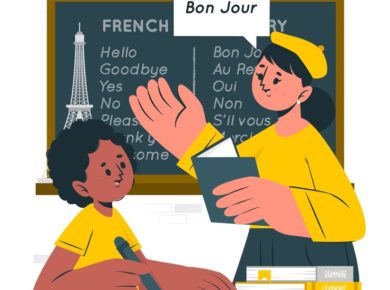The world of science education is constantly changing as more and more people are adopting creative, dynamic methods to teach physics. The resulting changes in disciplinary pedagogy, while sometimes controversial, can present opportunities for teachers who want to make a unique impact on students’ learning experiences. It is common knowledge that teaching physics in traditional way has flaws, and an innovative approach is often necessary to capture students’ attention.
But how do you teach science effectively and appealingly to students? The following strategies will aid you in your classroom management and help you capture your students’ interests. These strategies can be used for any subject for which teaching methods are usually the focus of classes, such as biology, history, or chemistry. Here are 10 effective strategies to use in teaching Physics.
Use Analogies and Anecdotes
When explaining a difficult concept in your physics class, try giving an example or anecdote to help students understand the idea. If students can relate a concept to something that happened in their lives, it’s much more likely that they’ll remember it later on.
Group your Students by Knowledge Gaps
Your students will all have varying amounts of knowledge about different parts of the physics course. To account for this, find out gaps in each student’s understanding by conducting a post-test before you start teaching the material. You should then organize your class according to each student’s knowledge level and start building from there.
Tell Your Students What They Don’t Know
If you want your students to really grasp the idea, tell them exactly what they don’t know! By highlighting their gaps in knowledge, you’ll be able to focus on important concepts relevant to each student.
Teach Everything You Can Get Away With
Try to teach everything from the first week to the last! If there’s something that you’re not sure about, it’s better to be safe than sorry! This will help you avoid many difficulties by not teaching the students already know. Once they’ve learned it, they won’t need it again and you can move on to something new!
Summarize the Material in Different Ways
Before they take their final exam, your students will need to be able to explain each concept in several different ways. Therefore, to ensure that they’ve truly mastered the material, teach it to them in various ways: conceptual, pictorial, and numerical.
Encourage Them to Ask Questions
Asking questions is a great way to ensure that you’re effectively teaching physics. But don’t just let them ask random questions–instead, have daily question prompts that relate directly to your lesson plan. This will allow you to identify any misunderstandings before they happen, giving you more time and energy for teaching other concepts.
Use Anecdotes to Show How Physics Works
If you want to go the extra mile and make your physics course more exciting, use anecdotes to show how physics works in the real world. Common examples of this would be using a flashlight in your class to demonstrate how light travels, or showing them how fire trucks work by creating a demonstration with fire. These analogies will help make the physics course less abstract and more relatable!
Eliminate Periods of Lecture and Guided Practice
A lot of high school physics courses are long, boring lectures. To avoid boredom, try taking this time to help your students practice what they’ve learned with a few guided practice questions. Make sure that you always ask them for their best answers to get better at answering questions that relate directly to the topic under discussion.
Use a Simple Format for Teaching Physics
Don’t let your student’s learning style ruin your physics course! If you’re having trouble keeping the class focused, try using an easy-to-follow format for teaching physics: explain the concept, demonstrate it or use a simple analogy. Once the student understands this idea, they’ll be able to apply it in different situations later.
Make Your Physics Course Fun
If you want your students to learn physics, have them play fun games or learn simple jokes that relate to physics instead of simply reading boring textbooks! If your students enjoy the course, they’ll likely retain what they’ve learned more.
Conclusion
There are many different ways that teachers can try to make the class more exciting, but it all comes down to their creativity and willingness to find new teaching methods. The key is implementing new weekly strategies with your students so that they learn better, grasp concepts faster, and remember information for longer. You’ll also be able to prepare yourself for test questions based on the topic you’re covering at the time.
The most important thing is patience! If you fail with any of these strategies, just try again! Different approaches will work better with different groups of people, so keep trying until you find something that sticks with your students. To attract more audience to your online courses get in touch with Classplus. Get your own app and conduct classes and connect with larger number of students across the country.




